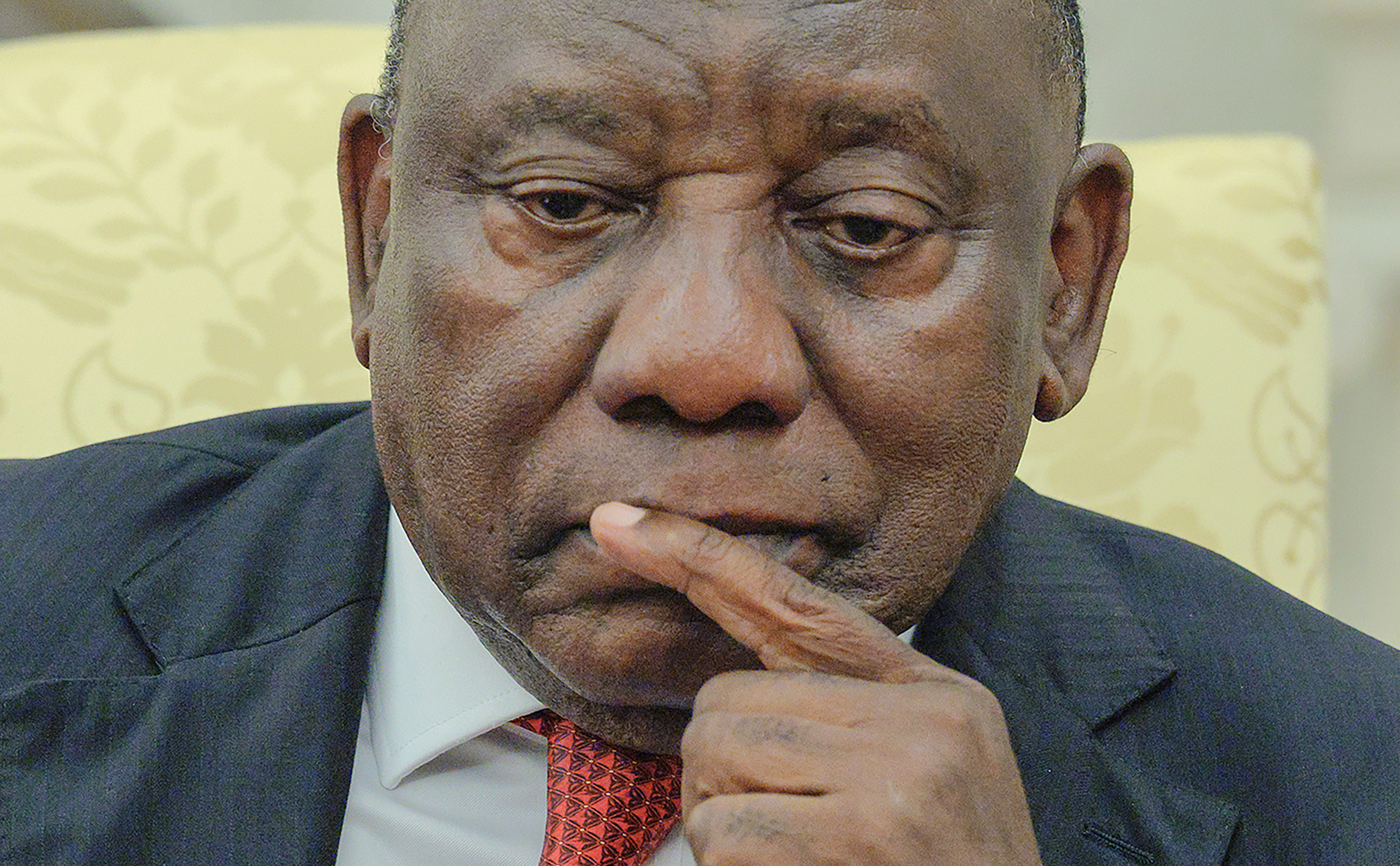“For you, sir, to say that BEE [black economic empowerment] is holding our economy back goes completely against what even the World Bank says!”
Thus responded a decidedly testy President Cyril Ramaphosa to Freedom Front Plus leader Corné Mulder in Parliament this week on the topic of the government’s economic policies and whether he would be prepared to ditch BEE.
Ramaphosa continued: “A few years ago, the World Bank and the IMF [International Monetary Fund] came out with a report that one of the things that holds our economy back from growth is the level of concentration. Concentration because, they said, the ownership of the economy is in far too few hands. Ownership has not spread. That is what the World Bank and IMF said.”
But is Ramaphosa correct?
Which report was he talking about?
The difficulty here is that Ramaphosa did not specify which reports from “a few years ago” he was referencing, and Daily Maverick’s questions to his spokesperson in this regard went unanswered on Thursday, 29 May.
Both the World Bank and the IMF, however, released reports about South Africa earlier this year.
The IMF’s was a Country Report launched in January; the World Bank’s was launched in February and titled “Driving Inclusive Growth in South Africa: Quick Wins with Competitive Markets and Efficient Institutions”.
What does the IMF say about BEE?
The IMF’s latest report, partially vindicating Ramaphosa, does not explicitly mention BEE, employment equity or affirmative action.
It says that its own figures show “that white South Africans earn almost twice as much as black South Africans on average after controlling for key individual and structural characteristics”.
It further states: “Closing the gender and racial pay gaps would increase the income of women and non-white population, whose wages remain significantly below the average. Achieving this goal would reduce the Gini coefficient [measuring inequality] by 4 points.”
How about the World Bank?
Here’s where things get a bit more uncomfortable for Ramaphosa, because the World Bank report did identify BEE as a potential “market distortion” which has “not been evaluated for effectiveness”.
The report did not, however, call for the scrapping of BEE. It stated instead that foreign investors, specifically, should be given alternatives to the ownership regulations of BEE.
One of the “essential reforms” recommended by the World Bank was the following:
“Streamlining firm entry and operational prerequisites related to the 2013 B-BBEE for foreign investors by making systematic use of Equity Equivalence Investment Programs when investors commit to train Black workers and develop supply chains with local businesses. The B-BBEE requires companies to meet specific thresholds of Black ownership and management control to participate in government tenders and contracts. While the B-BBEE is well intentioned, managing required scorecards places a heavy burden on public administration and foreign companies.”
It noted that the government had already applied the Equity Equivalence Investment Programe to IT companies, including Microsoft and Amazon Web Services, and banks — JP Morgan — since 2021, permitting these companies to make up their BEE scorecards through alternative mechanisms, including training and involving small black-owned companies in their supply chain.
“The government’s next step could be to extend these programs more broadly by clearly outlining eligibility criteria for investors interested in participating,” the World Bank advised.
What did these bodies have to say about the ‘concentration’ issue?
Ramaphosa is correct that both the IMF and the World Bank identified market concentration as one of the constraints on economic growth, although in both reports the issue received only a few sentences of attention.
“Market concentration has substantial costs for the economy, and these have risen over time,” wrote the World Bank.
“When market power is concentrated in a few dominant firms, markets are unlikely to innovate and find solutions that will allow them to remain competitive over time.”
The IMF, meanwhile, recorded: “High market concentration in several sectors, including manufacturing and banking, has inhibited the emergence of smaller firms that create new jobs.”
Conclusion: Half-truths are the name of the game all over
The World Bank did not give the South African government a free pass on BEE, as Ramaphosa seemed to suggest; it did identify the policy as a potential deterrent to foreign investment in particular.
But neither did the World Bank or the IMF suggest in these two reports that BEE should be scrapped as the primary obstacle to economic growth, as Ramaphosa’s critics have made out.
In 2020, the DA wrote to the IMF to request that a loan of $4.3-billion granted by the IMF for Covid distress payments to companies be conditional on it being exempted from BEE requirements. The IMF did not accede to the request. DM





